




By Poonam Kumar
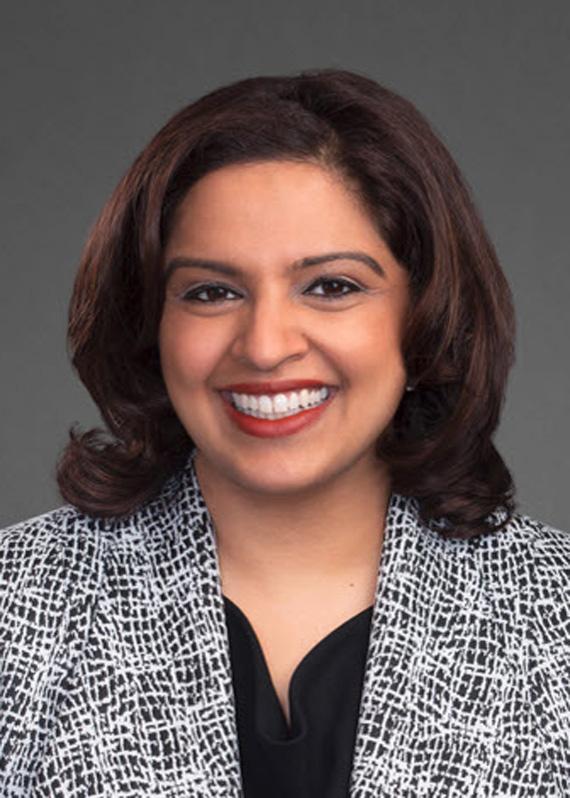
The Winter 2024 Issue of With Equal Right covers a rich array of topics that span from workplace support for women who are going through menopause, movement for equal pay transparency, and remote work’s effect on professional advancement. Each piece offers an informative take on the applicable subject and shines a light on the importance of advocacy we undertake as legal professionals.
As President of MWL, my theme for the year has been “Finding and Using your Voice”. To me this topic is critical if we are to advance in our path towards achieving professional and personal goals. But using your voice should also be strategic. I believe that one of the most impactful ways to use your voice is to effectively articulate your value to your organization. Being able to do so is a universal skill. In other words, it is organization agnostic. You can be a lawyer in private practice, government, judiciary, academia or a non-practicing legal professional. Each of us has decisionmakers and stakeholders who we need to manage and influence. Because, as we have all learned by now, simply doing good work is often not enough. We may need to do more to get noticed by the right people and at the right time, to further advance our career and achieve our goals.
Before I share some key strategies related to this theme, I want to offer an important note. In this article, I am not going to address the many systemic challenges we face as women professionals, and specifically as women lawyers. Without a doubt, much has been written about strategies to overcome such challenges. However, with this article, I will share some thoughts that may help us individually assess and articulate our value successfully, despite all the systemic hurdles we may face. These ideas have helped me progress my conversation with relevant stakeholders and I hope they are similarly helpful to you.
In my experience, I have found that sometimes women undervalue what they have to offer to their organizations. Whether it is a fear of being rejected, of not being promoted, or my favorite, the fear being perceived as being too bossy, too much, too ambitious, or too “youknow-what.” However most often, our male colleagues do not face these same challenges. Generally, their worth is not challenged nor it is viewed as threatening. I have often shared these frustrations with my life coach (also known as my mom). She is a sage woman and has always helped me think with clarity and focus. One of her favorite quotes when I am facing a challenge is, “So you know these are the rules of the game and they are especially harder for you. What are you going to do about it? How do you play to win in this framework that you may not be able to change?”
Knowing how to articulate your value is critical. However, the first step is understanding your value yourself. Here are few considerations on how to think about the value you bring to your organization.
First, I encourage you to engage in a mindset shift. Instead of feeling bogged down as having to communicate your worth or your value-add, I have found it to be helpful to think of this as a communication strategy for self-advocacy. Just like we practice a presentation or speech, we should practice talking about ourselves and our work in an energetic and enthusiastic way. A focus on communicating your skills and achievements serves as important self-advocacy, rather than thinking of it as being a “brag.” Doing so may provide an opportunity to further advocate for your team or colleagues as well.
Second, I urge you to think broadly and holistically about your value. I
have found that all of my experiences, both professional and personal, bring value to the table. I encourage you to think comprehensively about the problems you have solved, teams you have managed, assignments you have completed on time, deadlines you have negotiated, and other specific accomplishments in your professional career. Do not ignore the challenges you have addressed in your personal life as well. Taking care of young children or aging parents while working is not a small feat. It involves planning, time management, and optimal allocation of resources. We should be ready to highlight relevant pieces of that experience, too. Furthermore, many attorneys have enjoyed a career prior to the law, which provides further opportunity to share skills and experiences. The totality of your experience becomes a part of your whole value package, as you make this assessment.
Third, be matter-of-fact, honest and direct with yourself as you assess the value you offer. Most organizations operate with matter-of-fact attitude and language, and it is useful to reflect the same in your assessment.
Together, these multiple elements create a portfolio of experiences and knowledge, without requiring us to be an expert at one particular skill. Ultimately, this is really a deep exercise in understanding and reflection, and I would argue that it should be undertaken every 3-5 years to ensure we are appropriately assessing our contributions. It is an intentional undertaking and comes with practice.
Once you have successfully identified the assets you bring to your organization, the final consideration is to frame your value. Each of us has stakeholders that we communicate to and manage. We should frame our past accomplishments and future potential value in terms of how these will impact our particular group of stakeholders.
I suggest that you try to answer the following questions:
• Why should my stakeholders care about my skills and accomplishments?
• What is the value of these skills and accomplishments to the larger organization?
Working on responses to these questions can be very enlightening and may result in organizational cost savings, more-effective teams, excellent client service, innovative leadership, collaborative work, or the ability to deliver seamless solutions to your stakeholders. Each response is instructive in helping you frame your current contributions and future potential to your organization.
One final note. It is always critical to communicate your value beyond your immediate role. This allows you to demonstrate that you are thinking about your contribution more broadly and how it relates to the organization’s larger mission and goal. Of course, this may be the most challenging aspect of framing your value. We are so subsumed in our daily grind of getting projects, transactions and matters done and we often do not take a step back to see how we fit in the larger picture. However, I argue it is a critical component of reaching success, as we “find and use our own voice.”
As we come out of a season of reflection and into a phase of resolutions, let’s resolve to engage in this important work of articulating our value and framing it in terms of not only what is important to our stakeholders, but most importantly, to ourselves. The next step in this journey is how to best message one’s value, but that is an article for another day.
I wish you a healthy, happy and reflective year ahead. g
ABOUT POONAM KUMAR: Poonam serves as MWL’s FY23-24 President. She is a partner in the corporate practice at DLA Piper LLP (a large global law firm) and is based in their Minneapolis office. She is a representative for DLA Piper’s Leadership Alliance for Women and previously served as a co-chair of Mosaic, DLA’s affinity group for diverse partners and counsel. Twin Cities, Poonam also serves on the Advisory Board for South Asian Women’s Network. Learn more about Poonam at www.mwlawyers.org/FromthePresident
By Krista Larson
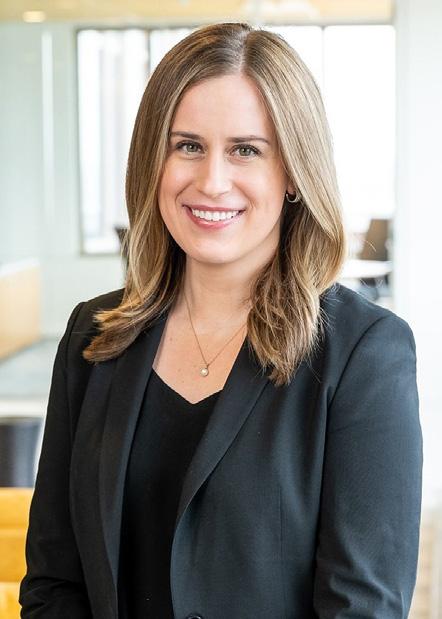
In the wake of the global shift toward remote work, the legal profession has undergone a transformative journey, altering the dynamics of professional relationships and advancement opportunities. This change, while offering newfound flexibility, has also presented challenges that disproportionately affect women in law. Understanding the nuanced impact of remote work on women lawyers is crucial for addressing the evolving landscape of the legal profession.
It’s been two years since Stinson LLP brought people back to the office and implemented our permanent hybrid work schedule. Coming together in person to learn, mentor, build relationships, and serve our clients is vital to how we do business. At the same time, the pandemic challenged our assumptions about how and where we work best. Our schedule provides attorneys and staff the flexibility to work remotely two or three days a week, which has added value to our well-being initiatives. Whether it’s taking an hour to see a child’s school play, to check on an aging relative, or to get in a workout, we want to empower our people to make choices that make sense for their lives.
This past summer, as other law firms announced return-to-office mandates that would require attorneys and staff to be in the office four or even five days a week, we began to see how our permanent hybrid schedule could be a competitive advantage in the talent marketplace, especially for women and others seeking autonomy in their work situation. Instead of following the trend, we redoubled our efforts to preserve that flexibility while ensuring that our in-office days are spent fostering meaningful relationships with colleagues and clients.
Still, the advent of remote work has undoubtedly reshaped traditional office relationships. While digital communication tools can enhance collaboration in a virtual environment, they also limit some of the spontaneous interactions and mentorship opportunities that are more readily available in physical office spaces. Women in law have historically faced challenges in accessing mentorship and networking opportunities; and during the pandemic, the shift to remote work exacerbated some of the existing disparities, particularly among women with caregiving responsibilities. As we look ahead to 2024, it is essential for employers to implement deliberate strategies to foster professional connections as the concept of “face time” undergoes a paradigm shift. Face time still has a role in career advancement, and it does not need to be in conflict with flexible work policies.
For Stinson, our hybrid arrangement has been a best-of-both-worlds solution. We continue to be a firm where people can come together, connect in person and foster meaningful relationships. At the same time, our new, flexible way of working allows for increased autonomy. Our attorneys have that additional input and influence over how and where they work, while our firm culture retains its strength of social connection.
To make this work, we’ve had to be deliberate in how we create opportunities for connection. It’s no secret that some activities aren’t easily accomplished on Zoom, which is why we’ve rolled out strategic initiatives aimed at fostering high-quality connections (HQCs). A concept in positive psychology, HQCs are momentary interactions characterized by mutuality, vitality and positive regard. Examples include taking a few
mutuality, vitality and positive regard. Examples include taking a few minutes at the beginning or end of a meeting for informal conversation, having your camera turned on during a Zoom meeting, and simply waving good morning to the building security officers.
HQCs are highly consequential for relationships, both personally and professionally. For busy attorneys, the brevity of HQCs make them attainable even when time is at a premium. A single, brief HQC can do a lot to bolster relationships with colleagues and mentors, even when we haven’t recently connected face-to-face. Moreover, these kinds of positive micro-interactions can improve our physiological resourcefulness, which is important in giving attorneys more of what it takes to navigate the stress and demands of a dynamic practice.
At Stinson, much of our recent well-being programming has focused on creating opportunities for HQC. For example, we recently launched an Associate Breakfast Club. Through this program, associates in each office come together once a month over breakfast, not to talk about work but to build community and connection. It’s a chance to celebrate birthdays, weddings, new homes and other life events while associates are getting to know each other as people. Associate leaders are nominated to coordinate and host, providing our junior talent the chance to assume an engaging leadership role. “It’s as effective as it is simple,” one associate reflected following her office’s inaugural breakfast event: bring people together to break bread, then watch the magic happen.
Building on the success of the Associate Breakfast Club, we will be adding an all-attorney lunch to the lineup in 2024, inviting even more HQC opportunities and meaningful reasons to work in the office. We will also be re-launching our caregiver network, a group that formed during the pandemic as we navigated the challenges of family life while working remotely. In its new iteration, this network will include personalized mentorship opportunities and connections with colleagues who have similar caregiving responsibilities. We believe that creating intentional space for these connections – especially in a hybrid environment – is imperative to addressing the unique hurdles women face in advancing their careers.
Stinson’s focus on HQCs aligns with our broader goal of fostering diversity, equity, and inclusion in the legal field. In an era in which organizations are actively addressing these issues, valuing momentary interactions can be transformative. By integrating HQCs into organizational routines, roles and training, law firms and other legal organizations can create a more inclusive culture, providing women with the supportive networks necessary for career advancement. Together, we are figuring out how to maximize our time in the office to mitigate the impact of remote work on our professional relationships and advancement. As the legal profession adapts to the challenges of virtual collaboration, intentional efforts to cultivate positive interactions can prove instrumental in building a more resilient, inclusive, and thriving environment for women practitioners. g
ABOUT KRISTA LARSON: As the Director of Well-Being at Stinson LLP, Larson leads the implementation of Stinson’s vision, strategy, and programming to support the health and well-being of all constituents of the firm in alignment with the firm’s values and its American Bar Association Well-Being Pledge.
By Briana Al Taqatqa
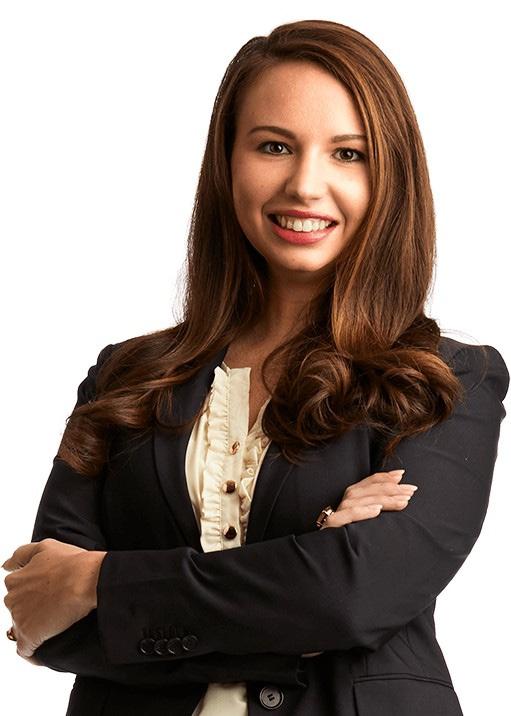
Why the Stigma?
Women make up nearly half of lawyers and law students overall—and every one of those women will be impacted by menopause during their lives and careers. And yet, few in the legal profession discuss menopause or provide related support in the workplace. The lack of support, in turn, can perpetuate stigma and bias against women at a critical stage in their careers, hinder productivity, and lead some women to leave the workforce. Legal employers can and should address this issue head on by becoming “menopause friendly.”i Not only is this the right thing to do to promote equity for women lawyers, but it is also good business.
There is a “culture of silence” around menopauseii. For many women, talking about their experience with menopause is an acknowledgement that they have reached the end of their reproductive years. More plainly, menopause may make women feel old and thus subject to society’s false narrative that they are undesirable or unnecessary, or the target of media messages that ridicule menopause with jokes about hot flashes or hormonal outbursts. Other women avoid discussing menopause because it can be a difficult and even traumatizing experience, given that menopause in some cases causes debilitating physical symptoms and serious health conditions. In short, menopause implicates sexism, ageism, and disability stigma. It’s no surprise women don’t like to talk about it.
Why is it a Problem?
Negative and unfair beliefs about menopause translate to negative and unfair treatment for women in the workplace. And the law does not (yet) provide clear protections for women in menopause as it does for pregnant and lactating womeniii
As one example, in Coleman v. Bobby Dodd Inst., Inc., No. 4:17-CV-29, 2017 U.S. Dist. LEXIS 88334, at *5 (M.D. Ga. June 8, 2017), Coleman was approaching menopause and experiencing unpredictable heavy bleeding. After she twice accidentally bled through her clothes, despite taking precautions, her employer fired her for what it called her failure “to maintain high standards of personal hygiene.” Coleman sued, claiming sex discrimination under Title VII of the Civil Rights Act of 1964, and the district court granted the employer’s motion to dismiss. Framing the question as whether firing a woman “for soiling company property on two occasions due to a uniquely feminine condition constitutes sex discrimination,” the court held that Coleman was required to, but did not, allege that she was treated less favorably than a male employee who also soiled himself and company property due to a medical condition.
In reaching its result, the district court referred to an appellate decision that determined lactation to be a protected status in the workplace. Notably, the appellate decision also addressed menstruation— reasoning that the district court in Coleman ignored. Specifically, the
i See Sharon Otterman, A Movement to Make Workplaces ‘Menopause Friendly’, N.Y. Times (May 24, 2023), https://www.nytimes.com/2023/05/22/nyregion/menopause-women-work.html.
ii Emily Gold Waldman et al., Contextualizing Menopause in the Law, 45 HARV. J. L. & GENDER 1, at 9–12 (2022).
iii See generally Bridget J. Crawford et al., Working Through Menopause, 99 WASH. U. L. REV. 1531 (2022).
appellate court called menstruation “a normal aspect of female physiology . . . affected by pregnancy” that, like lactation, “seems to readily fit into a reasonable definition of ‘pregnancy, childbirth, or related medical conditions’” protected by federal law. EEOC v. Hous. Funding II, Ltd., 717 F.3d 425, 429-30 (5th Cir. 2013). The inconsistent results highlight the unpredictability of legal protection in the workplace for menopause and menstruation.
More than one-third of women between the ages of 50 to 64 reported moderate to severe difficulties coping at work because of menopausal symptomsiv. Symptoms of menopause vary widely; those that affect women at work include those that are disruptive in visible (and sometimes embarrassing) ways—sweating, reddening, rapid weight gain, heavy menstrual bleeding—and invisible ways—“brain fog” or reduced mental acuity, memory loss, and fatigue.
Unfortunately, many women suffer in silence because they fear negative consequences of seeking accommodations for menopause. As a result, the physical and emotional symptoms of menopause can be a large factor in women’s decisions to take early retirement or move to part-time work, often at the height of their careersv. A Mayo Clinic study found that menopause costs American women an estimated $1.8 billion in lost working time per year, including women who cut back hours or miss work entirely due to menopause symptomsvi
Globally, menopause related productivity losses amount to $150 billion a yearvii. Women in the menopause age group are likely to be eligible for senior roles, and their departures hurt director-level diversity and contributes to the gender pay-gap. Accordingly, there are legal, reputational, and business risks to employers that fail to address the issue.
The impact of menopause presents particular challenges for women in the legal profession. Challenges associated with menopause symptoms for legal professionals include experiencing hot flashes that strike in client meetings or in court, maintaining a formal corporate wardrobe while experiencing rapid weight gain, and managing a challenging workload when dealing with fatigue and cognitive issuesviii .
As noted above, the departures of women as they approach the peak of their careers diminishes diversity in management positions and widens pay disparities (whether in private practice, in-house, or the public sector). Law firms, led by many in the United Kingdom, are recognizing that discussions on menopause are essential if a firm is serious about keeping and promoting women into management positionsix
Continued on page 5...
iv Stephanie S. Faubion et al., Impact of Menopause Symptoms on Women in the Workplace, 98 MAYO CLINIC PROCEEDINGS 815, 840 (June 2023).
v See Helaine Olen, Is Menopause Really Driving Women Out of the Workforce?, WASH. POST (Jun. 28, 2021), https://www.washingtonpost.com/opinions/2021/06/28/is-menopause-really-driving-women-outworkforce/ [https://perma.cc/6S84-93AU].
vi Faubion, supra note 4, at 839.
vii Lizzy Burden, Women are Leaving the Workforce for a Little-Talked-About Reason, BLOOMBERG (June 17, 2021), https://www.bloomberg.com/news/articles/2021-06-18/women-are-leaving-the-workforce-fora-little-talked-about-reason.
viii Kathy Abernethy, Is the Menopause Still Taboo in Law Firms?, LAW SOCIETY GAZETTE (Mar. 5, 2020), https://www.lawgazette.co.uk/commentary-and-opinion/is-the-menopause-still-taboo-in-lawfirms/5103327.article.
ix Sian Riley, Why a law firm menopause policy is vital in 2022 and our top ten tips to becoming menopause-friendly, THE ACCESS GROUP (April 6, 2022), https://www.theaccessgroup.com/en-gb/blog/ lgl-policies-and-precedents-for-law-firms-menopause/.
Continued from page 4...
So, what should legal employers do to create a menopause friendly workplace? Think physical accommodations, emotional and social support, and policy change. For example, employers can adopt a flexible dress code, review control of the workplace environment such as temperature and ventilation, provide free menstrual products in bathrooms, offer menopause support (affinity or resource) groups, increase dialogue about menopause, promote flexible hours and hybrid/ remote work, confirm that (or revise) diversity, equity and inclusion policies address menopause, provide menopause leave, and provide access to menopause treatments, such as coverage for hormone replacement therapy.
Despite strong recent strides, women still make up less than one-fourth of law firm equity partnersx. Creating a work environment where women feel supported has been crucial in improving equity for pregnant and lactating women and new parents. The same is true for women experiencing menopause. Implementing the menopause friendly workplace is critical for legal employers that want to retain experienced women and elevate women lawyers to senior roles. g
x NALP, 2022 Report on Diversity, at 4 (Jan. 2023), https://www.nalp.org/uploads/Research/2022NALPReportonDiversity_Final.pdf.
ABOUT BRIANA AL TAQATQA: Briana is an associate in Dorsey & Whitney LLP’s Labor & Employment practice group. She works with employers to develop effective workplace strategies and implement efficient policies and procedures to help manage employment risks. When disputes are unavoidable, Briana draws on her strong litigation experience to defend her clients against claims for discrimination, harassment, retaliation, contract matters, and wage and hour suits.
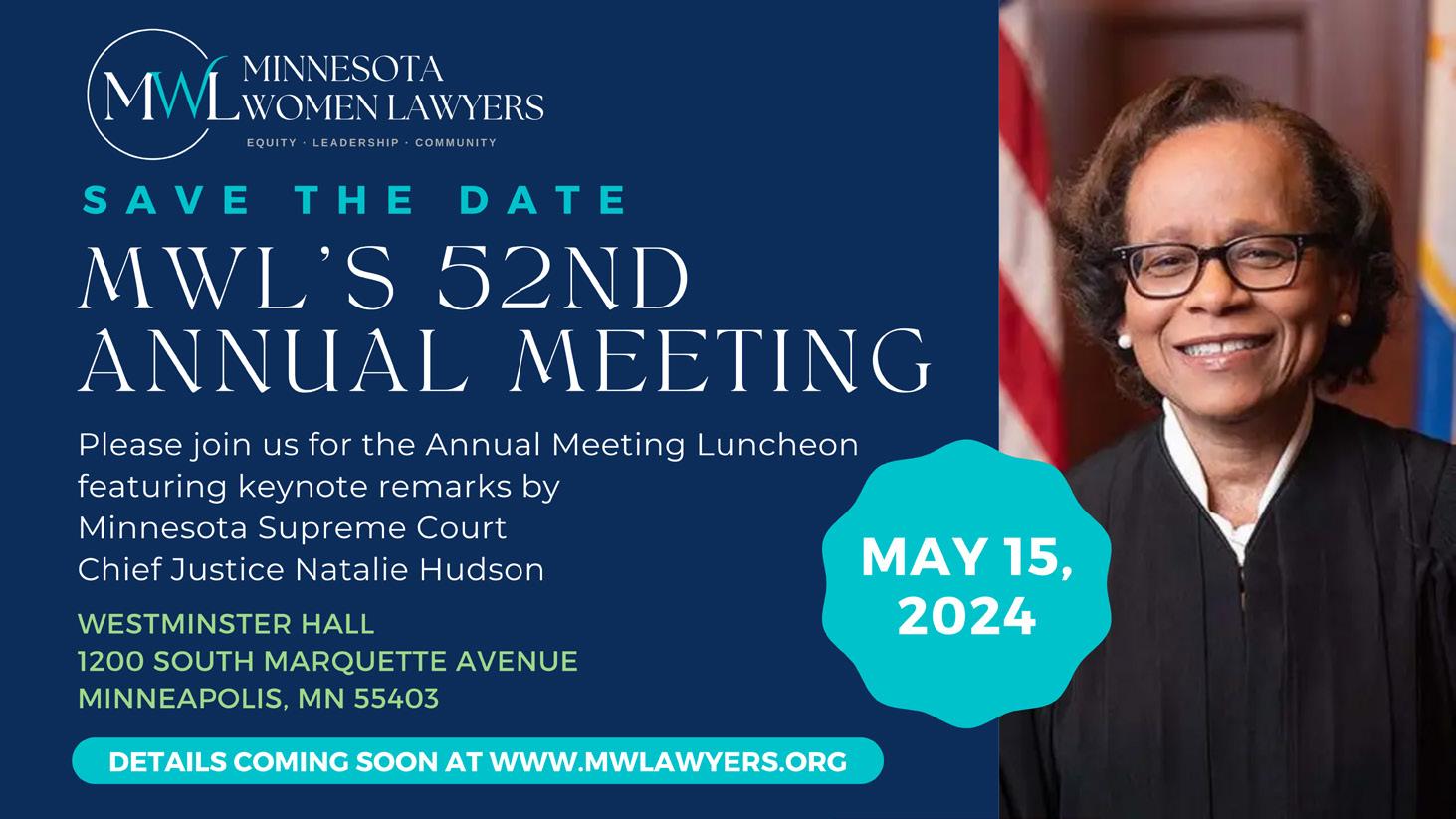
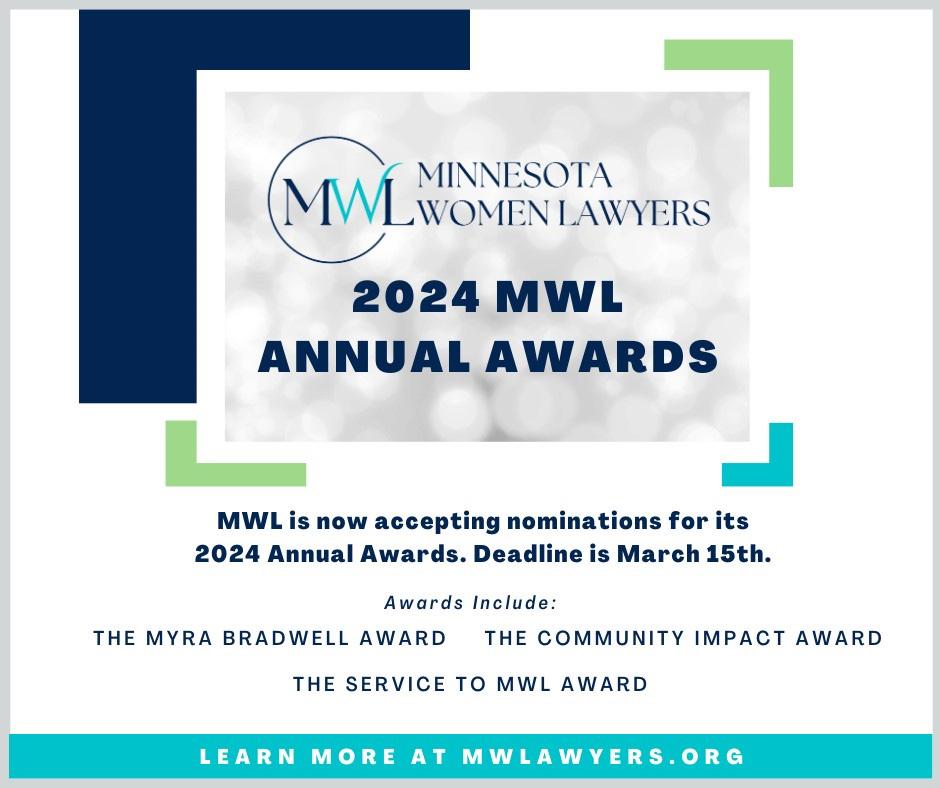
President Poonam Kumar, DLA Piper LLP
President-Elect
Emerald Gratz, Minnesota Department of Public Safety
Secretary
Karen Opp, Korn Ferry
Treasurer Dionne Blake, Target Corporation
Past-President
Jennifer Robbins, MADEL PA
Board Directors
Deborah Autrey, Nilan Johnson Lewis PA
Laura Bartlow, Zelle LLP
Cody Blades, Parker Daniels Kibort, LLC
Amy Boyle, MJSB Employment Justice
Molly Hough, Prime Therapeutics
Kelsey Kelley, Anoka County Attorney’s Office
Kristen Larson, Ballard Spahr LLP
Virginia McCalmont, Forsgren Fisher McCalmont DeMarea Tysver LLP
Mary Szondy, Attorney at Law
Ellen Ahrens Wickham, MADEL PA
Chapter Liaisons
Central Chapter
Heidi Hovis, Minnesota Department of Human Rights
St. Croix Valley Chapter
Amy Schmidt, Campbell Knutson, P.A.
Northeastern Chapter
Linda Tabory, Tabory Law LLC
South Central Chapter Open
Law Student Liaisons
Mitchell Hamline School of Law
Mariah Marks Erickson
University of Minnesota Law School
Ally Diwik
University of St. Thomas School of Law
Monali Bhakta
Staff
Debra Pexa, Executive Director
Katie Gunaratne, Membership & Communications Coordinator
Tessa Jones, Program & Projects Coordinator
By Dominque Murray
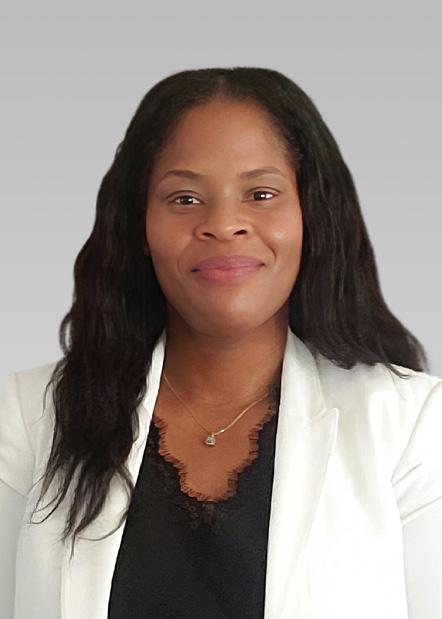
Dominique Murray
Since the federal Equal Pay Act was passed in 1963, the concept of fair pay has made its way into the labor force. The Act recognized that women’s work, and their fair and equal treatment in the workplace, are vital to our country’s economic success. In 1983, Minnesota became the first state to pass a pay equity law, which covered state agency employees. In 1984, it was revised to include all local government employees as well.
Minnesota’s pay equity law requires that state agencies and local governments establish equitable compensation for female, male, and balanced job classes. This requirement of pay equity ensures that compensation for female workers is not consistently below that of male workers. To date, the state has resolved 96 cases of pay inequity over the past 20 years, resulting in $1,267,851 in total restitution for about 1,300 employees.
The state of Minnesota has established internal equity and pay transparency norms for state agency employees through statutes, administrative rules, and human resources practices. The state’s human resources management is built on principles of merit that aim
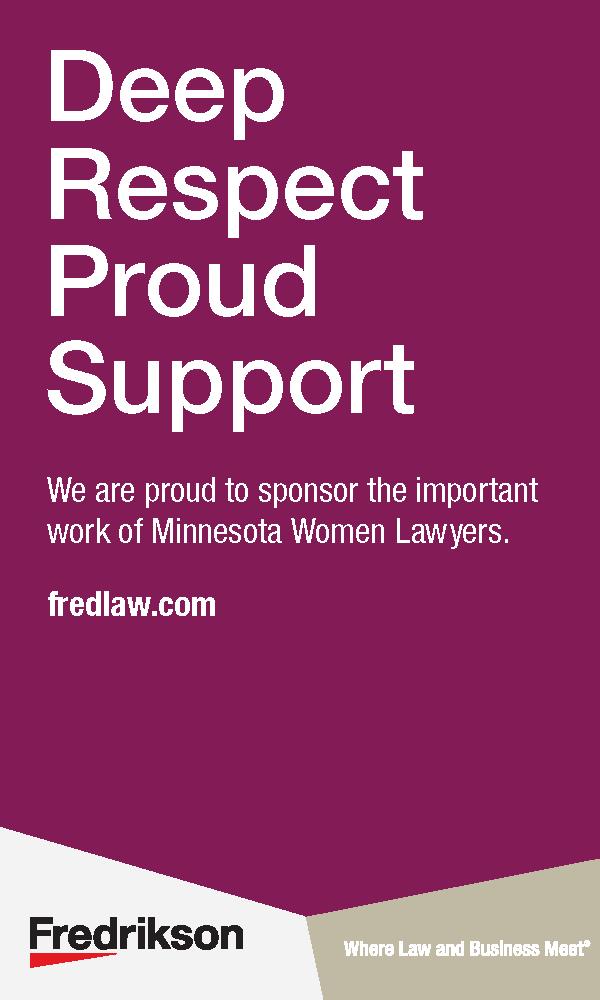
to ensure fair treatment of applicants and employees in all aspects, including adequate, equitable compensation without regard to political affiliation or protected class status.
The state’s job classification system evaluates job content through the Hay Guide Chart-Profile Method, which is a key factor in many employment compensation decisions. Hay evaluations are based on the level of work assigned to a position, rather than individual employee qualifications or performance. All classifications and salary ranges are posted internally and shared across the agency to enhance employee mobility between jobs, ensure equitable treatment of employees within and between departments, and assist in appropriate and consistent salary administration.
Minnesota has set a high bar to create equity and establish pay transparency in state agency positions. Its efforts include listing details about salary, classification, and bargaining unit on all job postings; creating a total compensation report of all employee salaries; and publicly posting current salaries and salary limits for agency heads.
Minnesota has also been a pay transparency leader for all employers in the state. In July 2023, Minnesota’s wage disclosure protection law was amended to more explicitly prohibit both public and private employers from discharging, disciplining, penalizing, interfering with, threatening, restraining, coercing, or discriminating against employees for discussing their own wages with others.
Effective January 2024, Minnesota law will also prohibit employers, labor organizations and employment agencies from inquiring about an applicant’s current wage, salary or benefits for purposes of determining the compensation that will be paid to the applicant. The law is designed to narrow the gender and racial pay gap because when future pay is determined by past pay, the cycle of unequal pay can last for a lifetime and pay disparities are particularly reinforced for underrepresented groups. However, the law does not prevent job applicants from voluntarily giving salary information to a potential employer. Based on the state’s history of working for pay equity, we can expect that private and public leaders across the state will continue to take important steps forward to combat wage discrimination. g
ABOUT DOMINIQUE MURRAY: Dominique Murray is an innovative servant leader with a passion for advancing equity and inclusion in workplace policies. In her free time, she enjoys visual and performance arts.
MWL’s Pay Equity Initiative is a sub-committee of the Equity Committee whose mission is to promote and advocate for equal pay for women and diverse/underrepresented attorneys across the legal profession. This includes pay equity for similarly situated positions, as well as the promotion of women and diverse/underrepresented attorneys to higher levels of leadership and responsibility within their organizations.
The Pay Equity Initiative encompasses three main areas of focus:
• Resources: Developing of a cache of resources to help educate and offer “best practices” to the Minnesota legal community on issues of pay equity.
• Education: Engaging in opportunities to join the discourse surrounding the gender pay gap in the legal profession.
• Communications: Amplifying pay equity as a critical issue for the advancement of women attorneys through ongoing communication efforts across the legal community.
The Pay Equity Sub-Committee meets monthly on the 2nd Wednesday of the month at 8:30 am via Zoom. More information is available at www.mwlawyers.org.
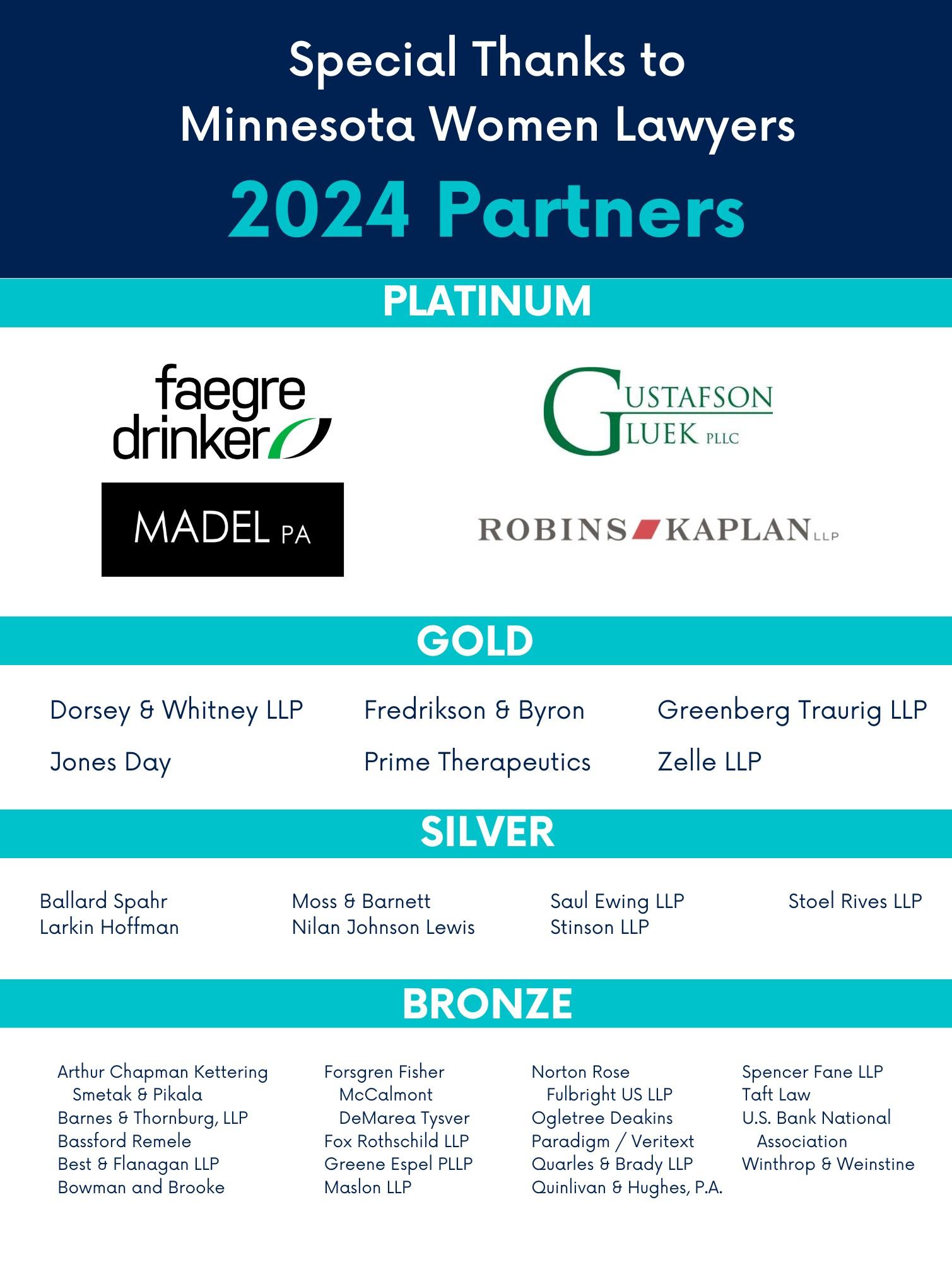
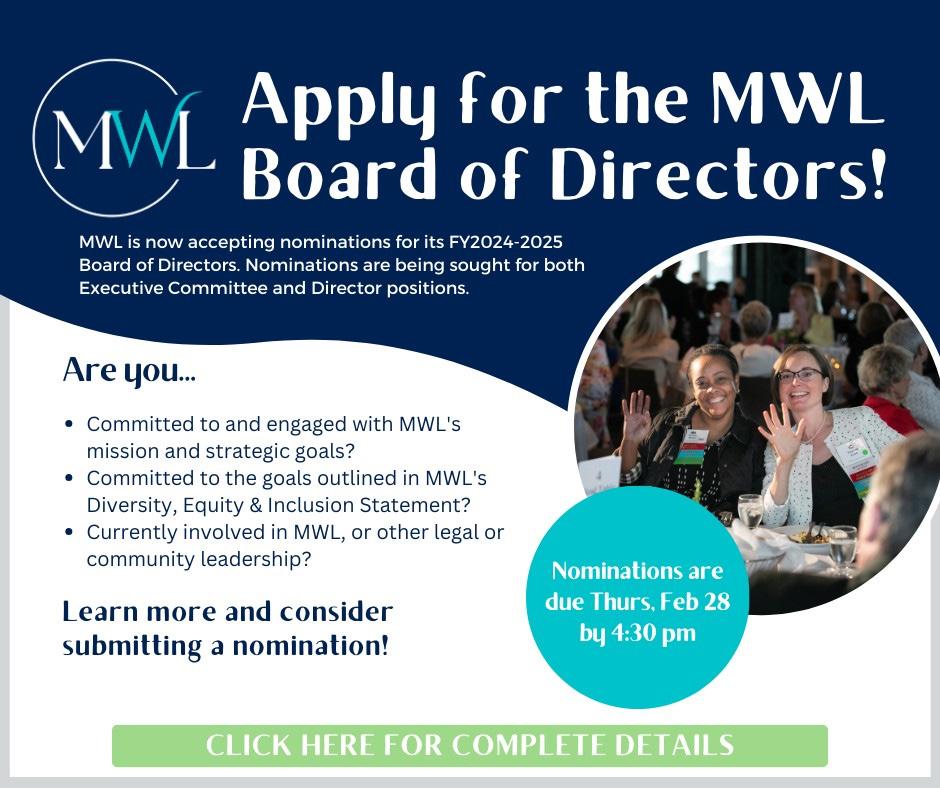
Minnesota Women Lawyers extends sincere thanks to its 2023-2024 Premier Members. A strong Premier Member commitment has been vital to MWL’s success over this past year.
Diamond
Felicia Boyd
Susan Gallagher
Kate Golden
Teresa Fariss McClain
Hon. Arlene Perkkio
Susan Rhode
Jenny Robbins
Amy Taber
Hon. Mary Vasaly
Chelsea Walcker
Sapphire
Landon Ascheman
Deborah Autrey
Amy Boyle
Lisa Brabbit
Hon. Margaret Chutich
Elizabeth Fors
Emerald Gratz
Kaniah Konkoly-Thege
Kristine Kubes
Judith Langevin
Kristen Larson
Bridget McCauley Nason
Hon. Susan Nelson
Alison Prosser
Pamela Rochlin
Hon. Miriam Rykken
Molly Tyroler
Visit our website to view a complete list of MWL’s Premier Members.
Join MWL now for 50% off!
As we move through the second half of our fiscal year, all MWL memberships are currently pro-rated to 50% of regular dues. The pro-rated dues amount will be automatically calculated and applied on the member application / renewal form. All memberships are current through 6/30/24. Nonprorated membership for the new fiscal year (with a renewal date of 6/30/25) will be available starting May 2024. Questions? Contact MWL Membership & Communications Coordinator Katie Gunaratne (kgunaratne@mwlawyers.org).
Learn more about MWL’s many membership benefits and opportunities at www.mwlawyers.org
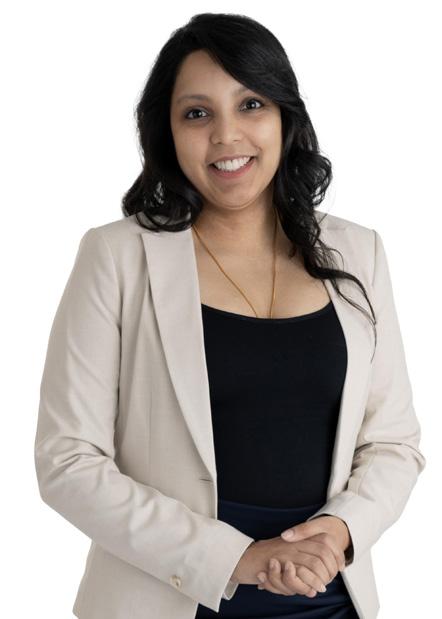
Describe your career path. When did you begin your legal career? What positions have you held, including your current job?
Sometimes I think my life has been like moseying through a forest, picking berries, finding bears, climbing trees, stumbling on the trail, and failing to have picnics at the creek.
I have an undergraduate engineering degree, was a scientist for a few years, got a masters in journalism & mass communication and was a research engineer engaged in science communication for a few years for a market-leading software company.
In law school, I did everything I physically could, because when else do you get a chance to try such a diversity of things? I represented every single student in the University of Minnesota system as Chair of the Student Senate during the pandemic, where “pivot” became a word in our daily lives and my advocacy resulted in concrete impacts for student lives. I clerked for a patent prosecution firm, clerked at the Minnesota AG’s office (which gave me my love of litigation), worked for the UN special rapporteur on human rights and counter terrorism, externed for a federal judge, was the student director of my clinic (International Human Rights Litigation and Legal Advocacy) and somehow (!) served over400 pro bono hours in those three years.
After law school, I clerked for Judge Julie Allyn at Hennepin County District Court and I am now an intellectual property litigation associate for Dorsey & Whitney, LLP.
Why did you go into law?
With that career track, one would think each change was a drastic shift, but wanting to help people has been a constant throughout my life. I went into law because I want to choose with intent a valuedriven life. If I was going to spend well over a third of my life working, I wanted to do it in a space where both my intellectual curiosity and need to be of service were satisfied, and where I could exercise those skills that made me feel good about myself, communicating, solving problems and building bridges.
Looking back on your career, what has brought you the most professional satisfaction?
I have a job and a career right now that is exactly what I was looking for when I decided to jettison a perfectly functional and pretty fun career to start over. I feel grateful most days, grumpy some days, and that’s fine. I try not to look for perfection in the detail when there’s gratitude for the overall state.
How do you define career or professional success? Has that changed for you through the years? If yes, how?
I think success is holistic. I don’t think I can parse out “career” success from the rest, because I chose a career not a job.
Success is also relative – to who you are, and to where you are in your life. My spouse and I have lived on $22,000 a year. We own a house now. Is that making it? Is that success? If it’s not, when will we have made it? The question of when one has “made it” troubled me for years. I feel that I, at least, never do feel like I have ever “made” it.
One reason I wanted to live intentionally through and for my values
is because I really struggle with moving goal posts. As soon as have I achieved something I set out to do, I move on to the next goal. So a measure of success for me cannot be a list of goals. I have done some fairly fabulous things – addressed the UN, for one; married and still in love after almost a decade for another – but I don’t even remember some of them anymore. So, to me, “success” translates to whether I am doing the right thing at the moment, and that is a state of being.
So, the test, for me, is this: Am I happy, satisfied, challenged, and connected three-quarters of the time? If so, I am successful every day, every week, every month … well, on average and over time!
What is the best/worst advice you ever received?
Both of these things I heard years ago, and have stuck with me for different reasons:
First, that women are measured by what we have done; men by their future potential. This is why I tell stories of my past. But while that is effective for some things, the most interesting thing about me is my future potential. I think it’s important that women learn to say and sell that.
Neil Gaiman once suggested picturing a goal as a far-away mountain; then say yes to every opportunity that moves you closer to the goal, say no to every opportunity that moves you away. Inevitably, then, when you are closer to the mountain, you will have fewer opportunities that you can say yes to, but just as many options. This approach has never failed me, and it has never prevented me from making that small, fun detour.
Describe your involvement with MWL. Given lawyers’ busy schedules, why do you prioritize and make time for such involvement?
I am an immigrant. Being in the US is learning to live in a space where I don’t belong. The law is a whole other culture. Without the help of my mentors – who believed in me, pushed me to do things that I didn’t think I was qualified for, answered my dumb questions – I would not be where I am. Not all of my mentors are/were MWL members, but many are. The women of color in the law forum was one of the first events I went to in law school; I continued to go every time I could. That feeling of belongingness and inclusion – so essential for retention – has sustained me.
It is why I am a member of the Minnesota Women Lawyers Foundation Board. It’s a way to give back, and it’s a way to facilitate others who have gained so much from this organization to give back too.
It’s worth the time because it is important for me to live authentically: it is a demonstration to myself that I am putting my money (and time) where my mouth is.
What vision do you have for your future? Where do you see yourself next year? In 5 years? 10 years?
Next year, I’ll be here, trying to make a difference; do interesting work; learning, sharing, and connecting with amazing people. The year after too. And beyond that?
“See the line where the sky meets the sea? / It calls me/ And no one knows how far it goes. . .” (Thanks, Moana).
Continued on page 9...
Continued from page 8...
When you’re not working, how do you like to spend your time?
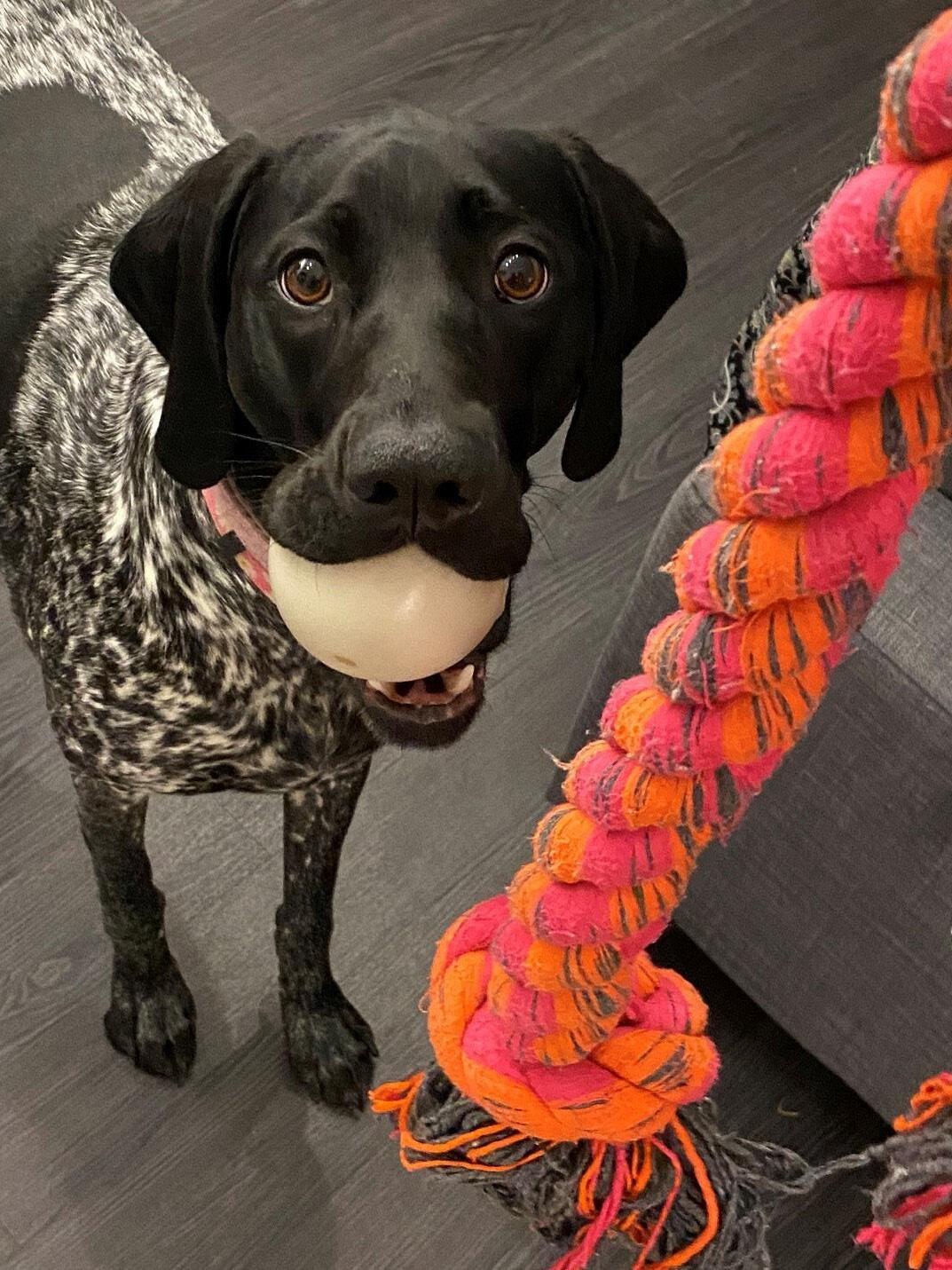
What’s one thing about you that surprises people?
I jumped off a perfectly good airplane dozens and dozens of times.
If you could instantly become an expert at something (non-legal), what would it be?
If I could figure out how to keep ferns alive in my apartment without investing the investigative time. . .
What is your superpower?
I can find a silver lining for anything.
If you could live anywhere in the world for a year, where would it be?
Italy.
Favorite quote?
“Men have always a choice - if not whether, then how, they may endure.” (Lois McMaster Bujold, Curse of Chalion). g
ABOUT SARANI RANGARAJAN MILLICAN: Sarani Rangarajan Millican is an associate with Dorsey & Whitney. She believes deeply in service and is committed to excellence. After graduating from the University of Minnesota Law School, she served as a law clerk for Judge Julie Allyn at Minnesota’s Fourth Judicial District. Prior to law school, Sarani was a scientist, a journalist, and a communicator. As an immigrant with a non-traditional path, Sarani loves hearing people’s stories.
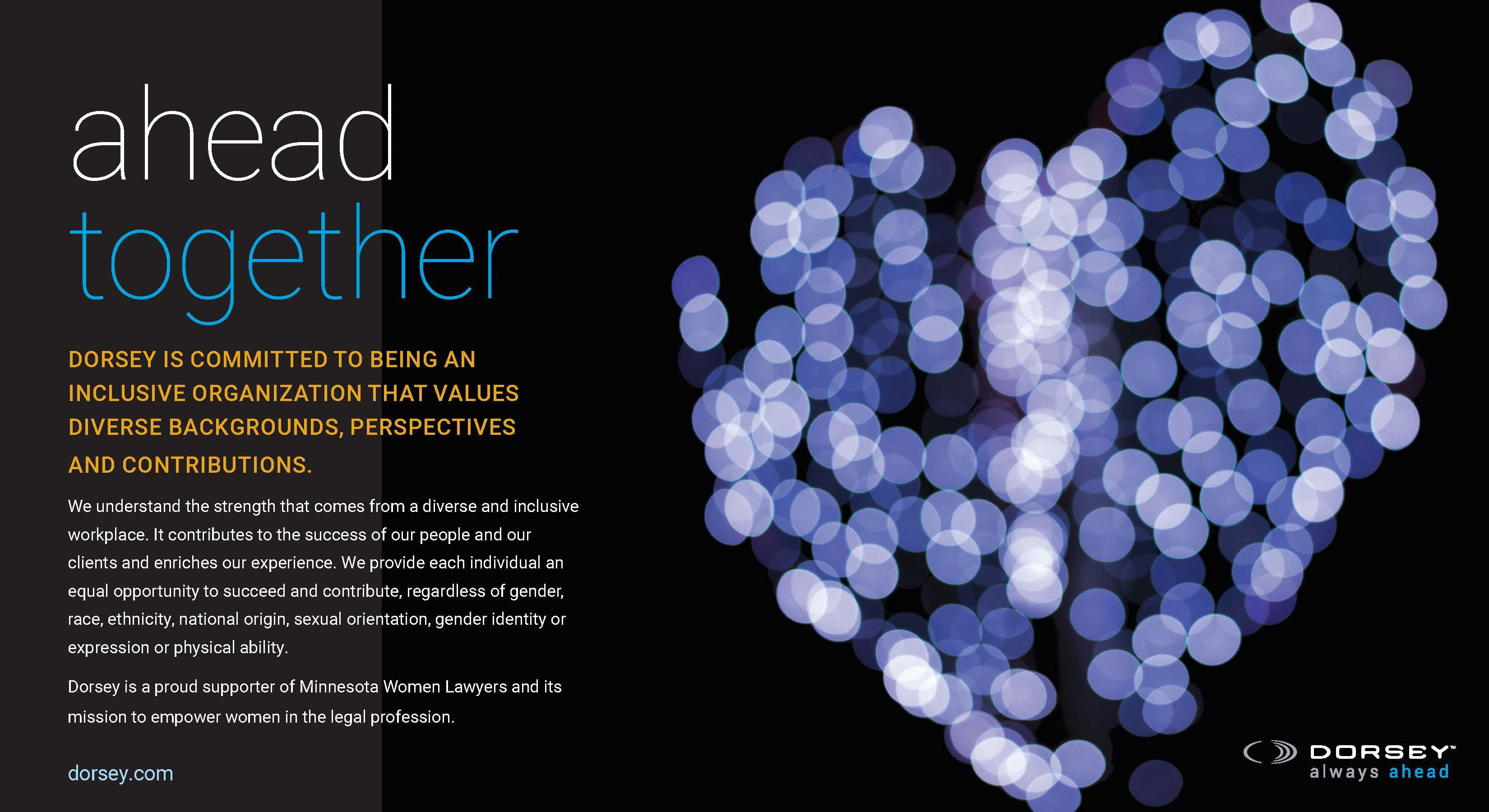
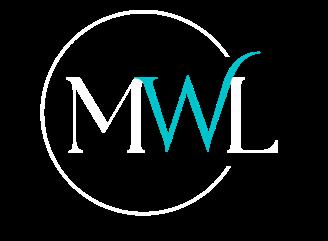
The MWL Rosalie Wahl Leadership Lecture was held on November 14, 2023 at The Reserve in downtown Minneapolis. This annual series honors the career of Justice Rosalie Wahl, the first woman justice to serve on the Minnesota Supreme Court, and features women who inspire the leaders of tomorrow just as Justice Wahl inspired so many of us.
The evening began with a presentation of the MWL Foundation’s Law Student and Leslie Altman Memorial Scholarship to Anisa Omar (University of St. Thomas School of Law) and Rachel Emendorfer (University of Minnesota Law School), respectively.
In keeping with FY23-24 MWL President Poonam Kumar’s theme of “Finding and Using your Voice”, the 2023 Wahl Lecture featured a fireside chat with an esteemed group of women leaders from the Minnesota legal community, including Amanda Cialkowski, Nilan Johnson Lewis; Amy Dahl, The Toro Company; and Lola Velazquez-Aguilu, Medtronic.
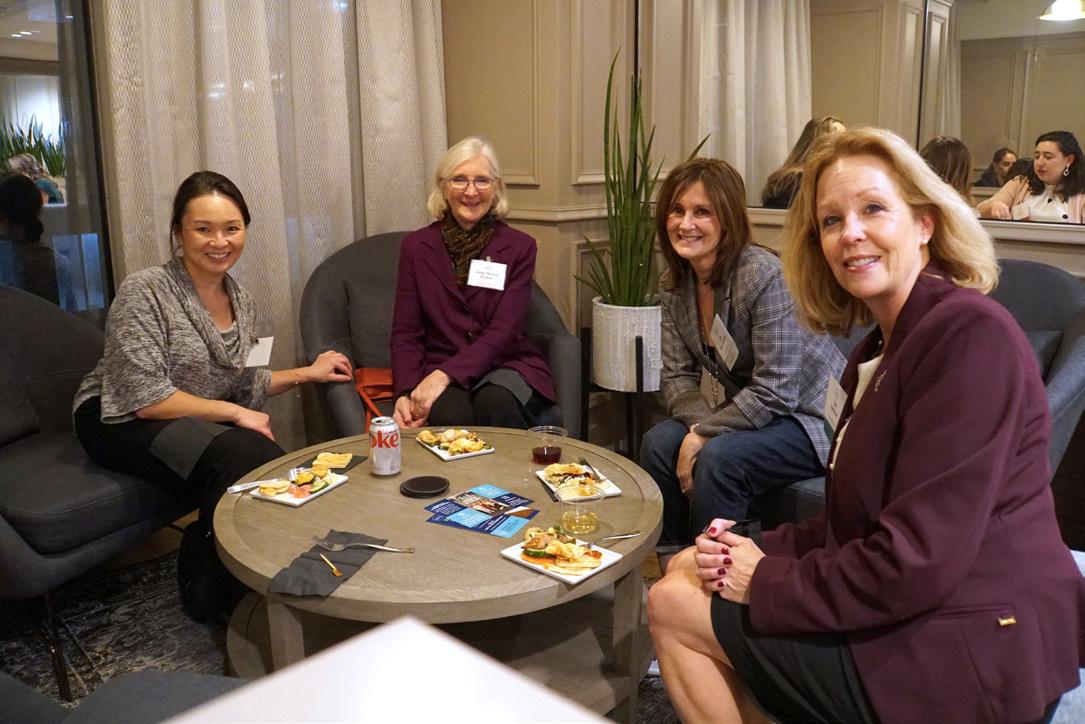
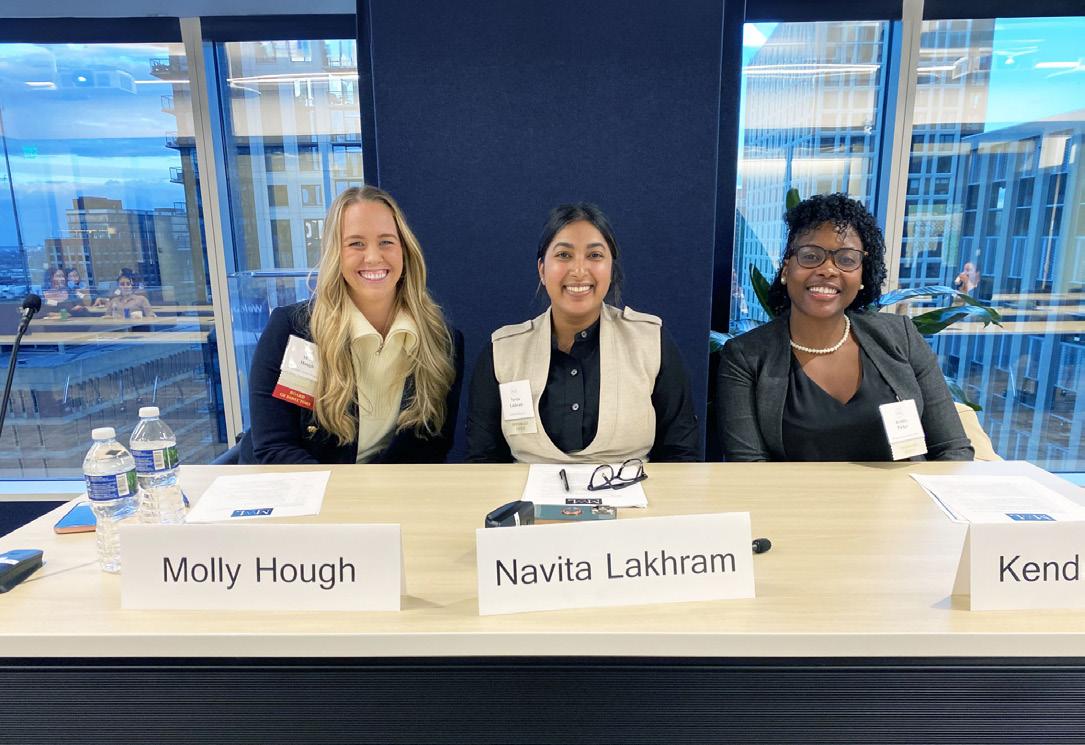
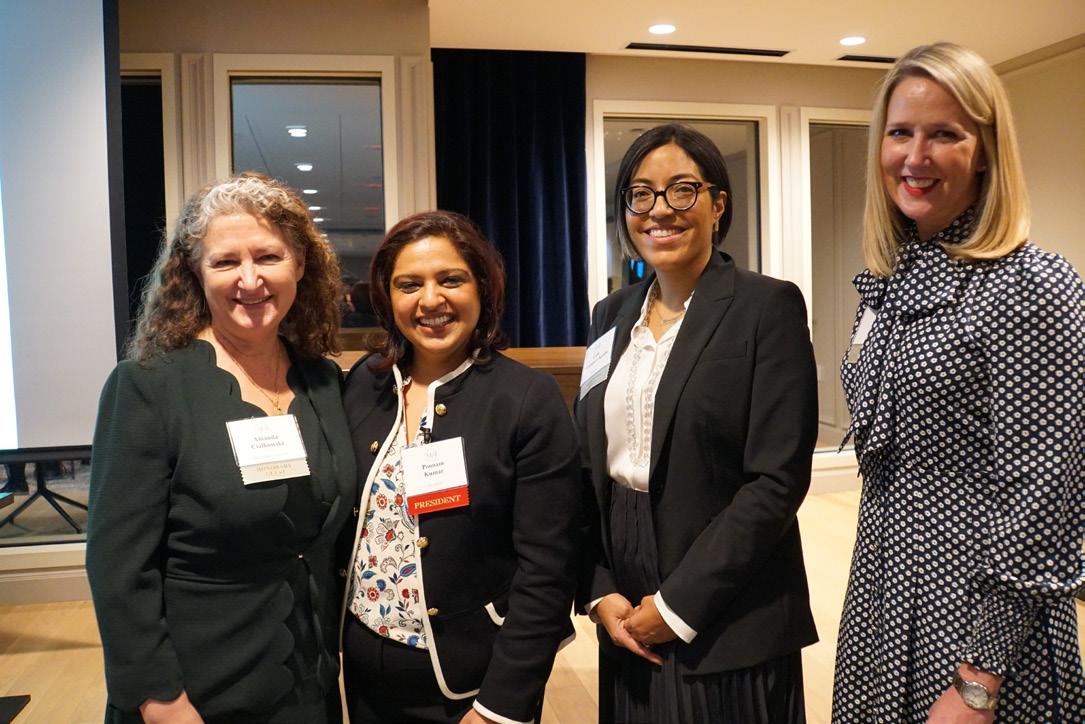
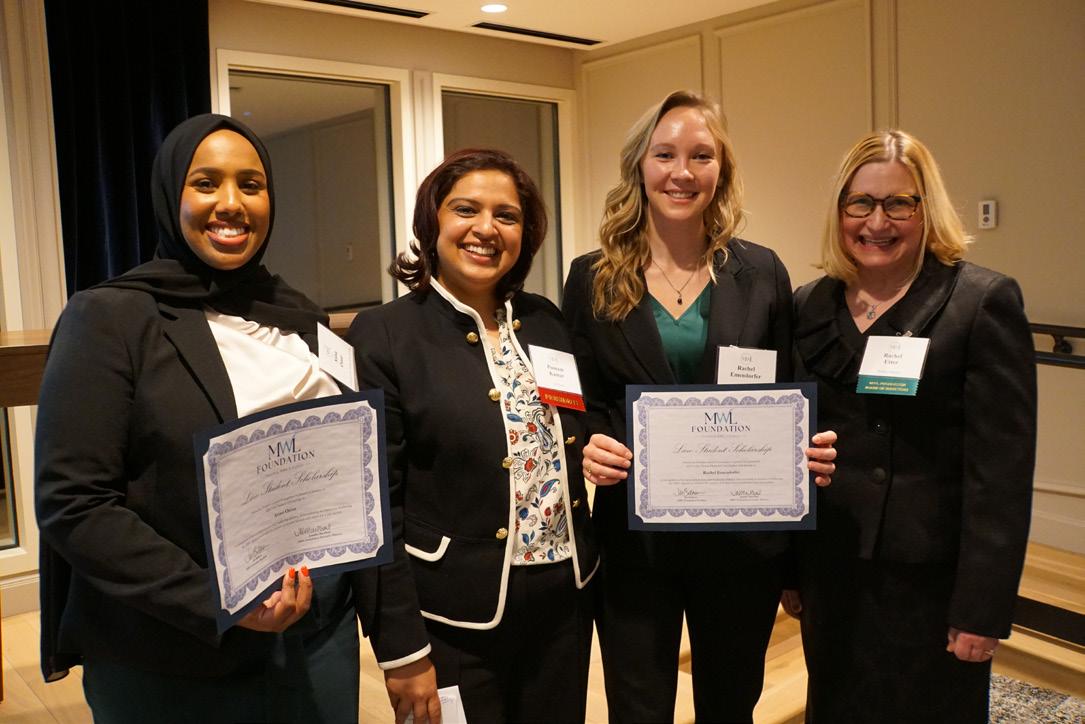
During FY23-24, MWL is pleased to continue offering its monthly CLE series. These programs provide an opportunity for members to engage with one another, learn from legal community leaders, and build connections across the profession. Held either in-person or remotely, most programs have offered CLE credit.
To date this fiscal year, MWL has been pleased to present the following programs:
• Empowering the Investor: Wealth-Building for Women Attorneys
• The Path to Mentorship: How to Create Horizontal and Vertical Mentor Relationships
• Rising to the Challenge: Stories of Success
• The Impact of the U.S. Supreme Court’s Ruling on the Indian Child Welfare Act
Visit www.mwlawyers.org
about upcoming programs.

To kick off the FY23-24 year, MWL hosted a Community Fair and social on September 26th at City Center in downtown Minneapolis. The Community Fair invited MWL members and others in the legal community to learn about the many leadership opportunities MWL has to offer.
In conjunction with Twin Cities Diversity in Practice, MWL co-hosted the Women of Color in the Law: Fall Social Gatherings this October. This series of casual events were offered across the Twin Cities, each providing the opportunity to build community and connections.
For the third year in a row, MWL was pleased to host a Winter Social in collaboration with the Minority Women Lawyers Association. Held on December 13th at MADEL PA in downtown Minneapolis, the evening was filled with comradery and community.
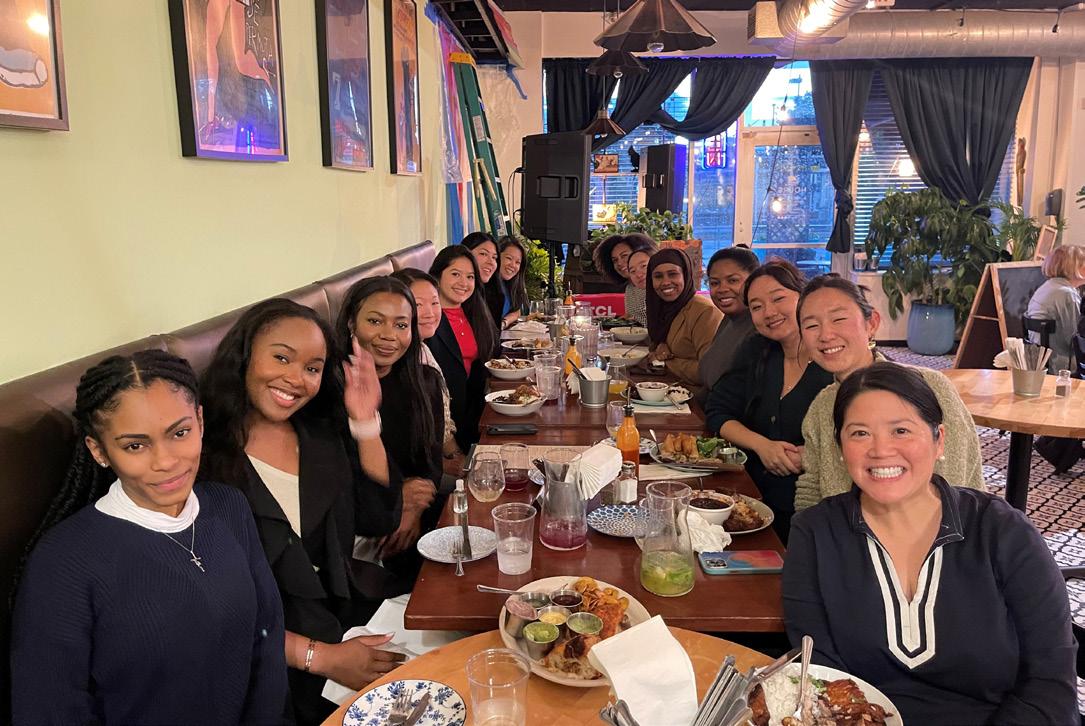
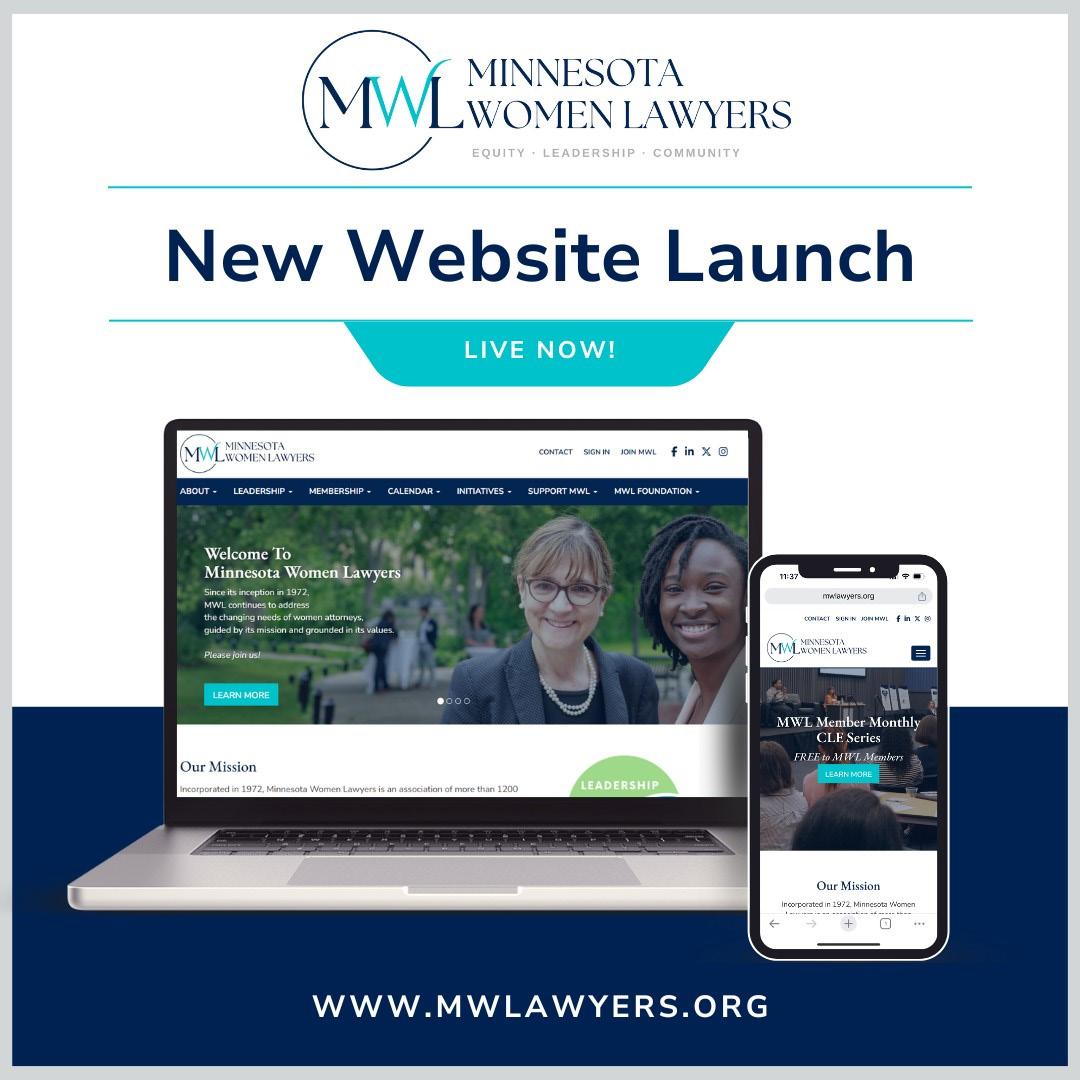
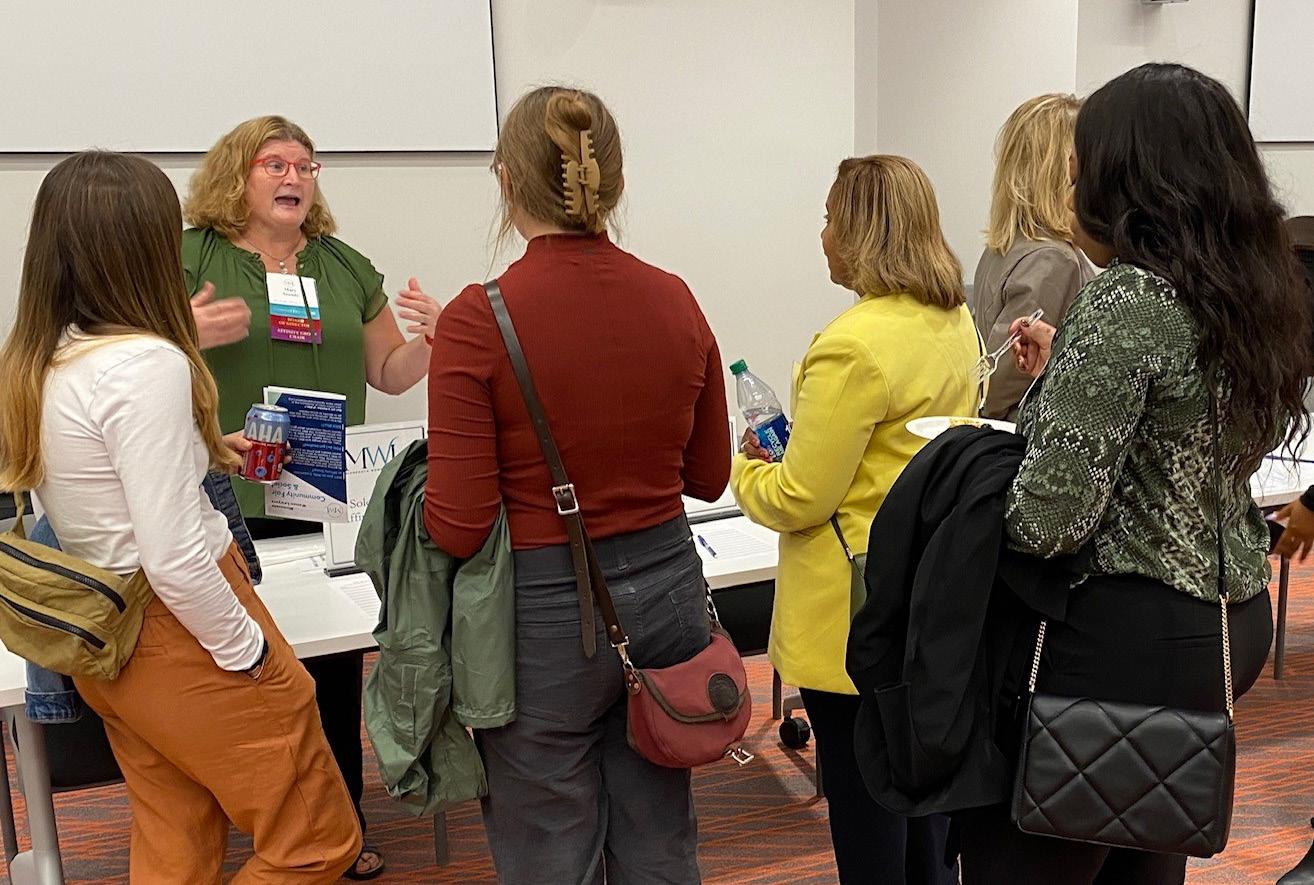
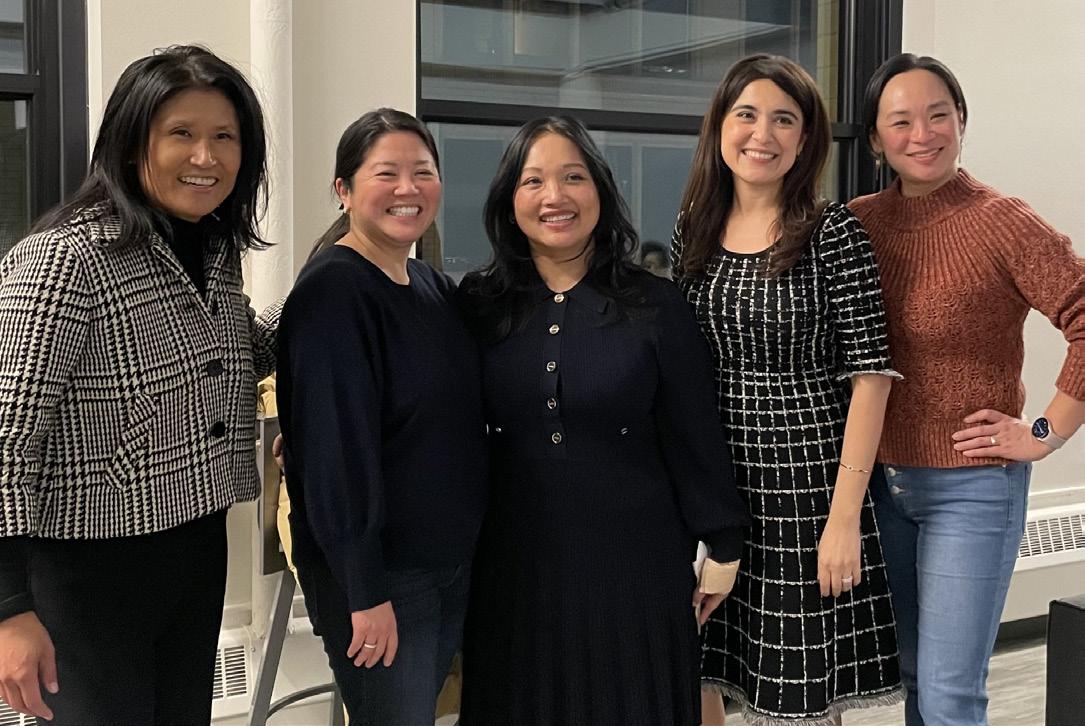
With the new year, MWL was pleased to launch its newly refreshed website. The new site not only incorporates MWL’s new logo and branding, but also provides a more accessible and user-friendly experience, allowing members and the greater community to learn more about MWL, its mission and benefits, and further engage with us. The website also serves as a bridge to The Exchange, MWL’s online member community.
Check out the new MWL website at www.mwlawyers.org. Log-in to The MWL Exchange at community.mwlawyers.org/home
The MWL Foundation also launched a website update in January, highlighting the many opportunities for our community to further support the MWL’s Foundation’s efforts to “Fund MWL’s Future.”
Learn more at www.mwlfoundation.org

Minnesota Women Lawyers uses its “Celebrating Success” initiative to honor, lift-up, recognize and celebrate women attorneys who have successes and good news to share. Since this initiative was first established by 2011-2012 MWL President Carrie Daniel Russell, MWL been pleased to recognize the many successes of women lawyers across the Minnesota legal community. Of course, success comes in many different forms, and no accomplishment is too small (or big) to share and celebrate.
Ultimately, Celebrating Success provides a forum for women attorneys to collectively acknowledge the impressive and outstanding accomplishments of our members, and in doing so, further amplify women’s voices across the State of Minnesota.
In conjunction with MWL’s newly-launched website, a new “Celebrating Success” webpage will debut this spring. If you have good news to share, please forward to MWL Membership & Communications Coordinator, Katie Gunaratne (kgunaratne@mwlawyers.org). Also, please share this opportunity with other legal employer staff who may also be interested in submitting on your behalf.
We look forward to sharing more details soon!
The MWL Professional Parents Affinity Group hosts virtual meetings on the second & fourth Tuesday of every month at 12:00 p.m. This affinity group is open to MWL members and attorneys in the legal community who are working parents.
For the past several years, with great success, the MWL Professional Parents Affinity Group has partnered with Lawyers Concerned for Lawyers (“LCL”) to have Jill Carlson, MA LPCC, facilitate discussions by introducing topics of interest. Topics range from challenges at all stages of parenthood, to helping our children develop resilience. The meetings provide members a relaxed environment to meet, network, and share experiences, challenges, and successes relating to their families and careers.
To receive meeting notices and reminders, please contact LCL at help@ mnlcl.org. To join the MWL Professional Parents Affinity Group online community, please contact Katie Gunaratne at kgunaratne@mwlawyers.org.
MWL is pleased to partner with LCL on this initiative. LCL also provides free and confidential peer and professional one-on-one support, including counseling, to legal professionals and their immediate family members. Learn more at www.mnlcl.org.
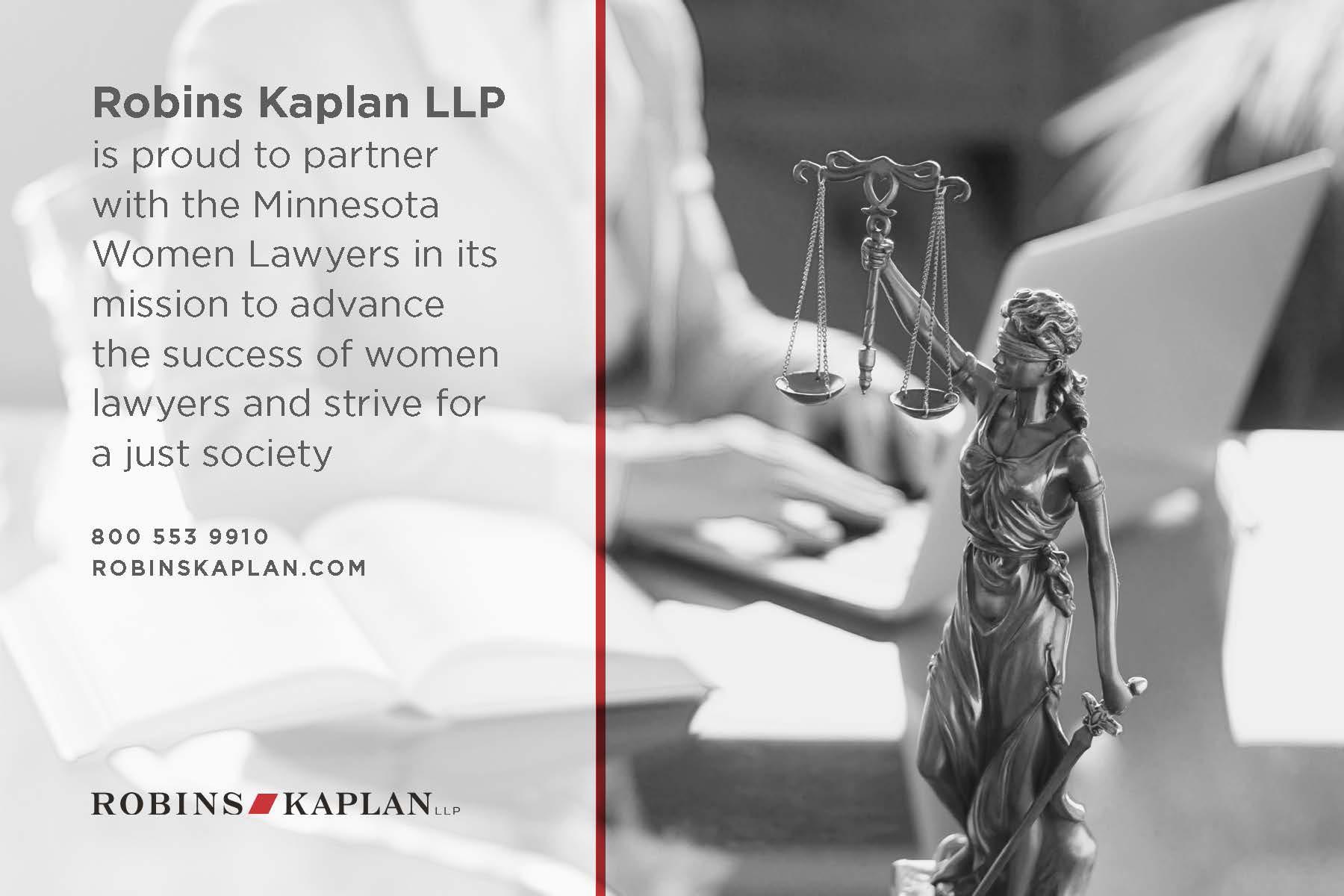
The Central Chapter includes MWL members working or living in the counties of Benton, Douglas, Kandiyohi, Meeker, Mille Lacs, Morrison, Pope, Sherburne, Stearns, Todd.
President: Kimberly Stommes, St. Cloud Public Defender’s Office
Secretary: Heidi Hovis, Minnesota Department of Human Rights
Co-Secretary: Brenda Sletten-Abedi, Board of Public Defense
Treasurer: Ashley Bukowski, Kelm & Reuter, P.A.
MWL Board Liaison: Heidi Hovis, Minnesota Department of Human Rights
The Northeastern Chapter includes MWL members working or living in the counties of Carlton, Cook, Itasca, Lake, Pine and St. Louis.
Chair: Rhonda Degelau, Attorney at Law
Vice President: Angela Ricker, Duluth City Attorney’s Office
Secretary: Kari Peterson, Sixth Judicial District Court
Treasurer: Kay Biga, Spott Law Office
MWL Board Liaison: Linda Tabory, Tabory Law LLC
The South Central Chapter includes MWL members working or living in the counties of Blue Earth, Brown, Faribault, Le Sueur, Martin, Nicollet, Steele, Waseca and Watonwan.
President: Susan Chambers, Attorney at Law, Mediator
Treasurer: Julia Corbett, Blethen Berens
the St. Croix Valley Chapter includes MWL members working or living in Washington and Chisago Counties. The Chapter meets to discuss current legal issues, network, and socialize and hosts volunteer opportunities in the community.
President: Angela Heart, Heart Law, LLC
Vice President: Vicki Hruby, Jardine, Logan & O’Brien
Treasurer: Mackenzie Campbell, Doar Drill & Skow
MWL Board Liaison:: Amy Schmidt, Campbell Knutson, P.A.
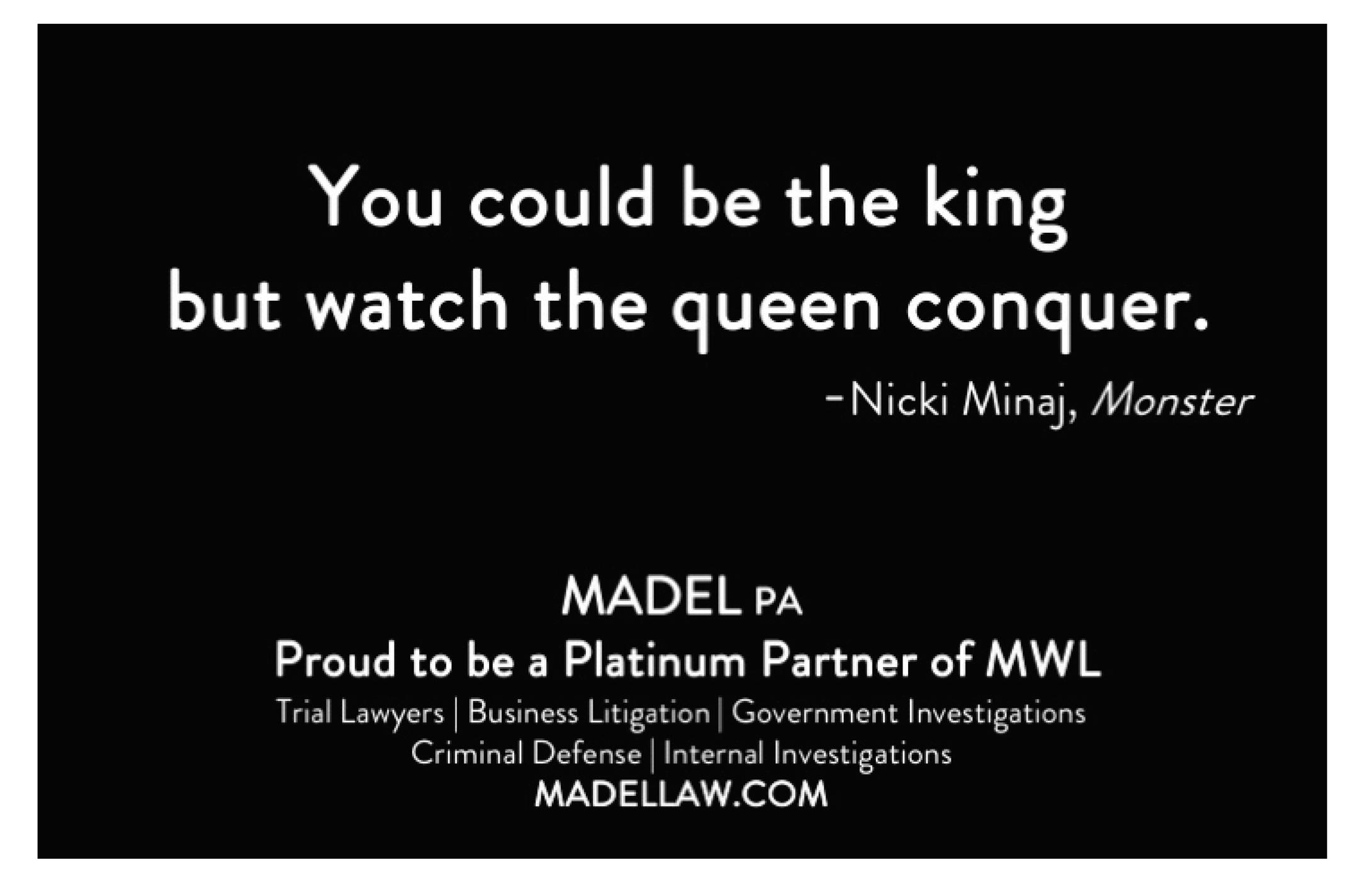
There have always been many ways in which attorneys could use their law degrees. Alternative career paths are becoming increasingly popular and relevant as law school graduates broaden their career options to include non-practice career settings. The MWL Alternative Legal Careers Affinity Group’s goals include: 1) to promote the many career options available to newer and more senior attorneys who choose not to practice but are still law school graduates; 2) to provide professional development opportunities not related to practice but to the broad range of skills and experiences represented by the many alternative career attorneys in MWL, as well as potential members; 3) to create an opportunity to exchange ideas, perspectives, and career options with each other; 4) to validate alternative careers as viable, intentional, and important ways in which an attorney can use her law degree, rather than a secondary, less-preferred option to practicing law; and 5) to provide networking opportunities for alternative career attorneys to get to know new people, connect with existing contacts, and learn about the various ways we are all using our legal education.
Co-Chairs:
Ruth Isaacson, University of Minnesota
Marie Ruzek, Wells Fargo Book Club
The MWL Book Club offers a casual and fun opportunity to meet other MWL members and discuss a book of common interest to the group. When meeting in person, the group enjoys dinner together (payment on your own) and then spends an hour discussing the book selection for the month. RSVP’s are requested (via the MWL Exchange) to get an accurate reservation count at the restaurant.
Co-Chairs:
Karen Bohaty, Attorney at Law
Makenzie Krause, Schaefer Halleen LLC
BWA@MWL:
In support of its mission to advance the success of all women attorneys, MWL members created BWA@ MWL: Black Women Attorneys Affinity Group as an opportunity for its Black women lawyers to connect, gather, flourish and grow. The goal of BWA@MWL is to create a safe space where Black women lawyers can regularly network, discuss issues that impact them and their communities, and collaborate on actionable steps to perpetuate change. Furthermore, BWA@MWL hopes to serve as an MWL touchpoint of welcome for Black women attorney members, both new to the profession and new to Minnesota.
Please Note: During the first year of its formation, BWA@MWL’s activities are open to those who identify as Black women. This initial focus allows the group to create a space that best centers the experience of Black women attorneys and law students.
Co-Chairs:
Deborah Autrey, Nilan Johnson Lewis PA
Maliya Rattliffe, Fredrikson & Bryon P.A.
The MWL Creative Collective (formerly known as The MWL Knitting Group) seeks to recognize and foster the creative interests of MWL members, regardless of skill-level, by providing an informal venue to connect with one another, share talents, and engage in creative endeavors together. From knitting, quilting and fiber arts, to painting, photography and poetry, all creative interests are welcome. Group activities may include networkingwhile-creating (e.g. BYO knitting, quilting, drawing, etc.), creating items for donation, and tutorials for members interested in learning new creative skills. Specific activities will be based on participant involvement and interest.
Chair:
Sarah Soucie Eyberg, Soucie Eyberg Law, LLC
The MWL Legal Athletes Affinity Group is a fun and informal way to meet fellow MWL members while breaking a sweat! We create a supportive space for active women and promote a balanced, healthy lifestyle. Depending on the season, our events range from group yoga, spin, zumba, walking, running, rollerblading, golf, racquet sports, and pretty much any other activity where we can get our heart rates up and enjoy some fitness and fun! Formal group gatherings are held quarterly (and may be subject to a small fee, depending on our planned activity and head count), with the option for more informal subgroup meetings weekly for members with access to Lifetime Fitness (or other gym’s based on interest), and members with niche fitness interests. Attendance for group events must be confirmed ahead of time for reservations and planning.
Co-Chairs:
Autumn Gear, Barnes & Thornburg LLP
Lauren Shurson, Mitchell Hamline School of Law
The MWL Legal Wine Lovers consists of members who enjoy tasting and learning more about wine and wine-related topics. Our goals are to increase our wine knowledge, provide educational opportunities by inviting guest speakers who industry experts or leaders, meeting new members using a common interest as the draw, networking, and FUN! Past topics have included: “Know Your Whites,” “Know Your Reds,” “How to Order from a Sophisticated Wine List,” How to Throw a Wine Tasting,” Impressive Yet Affordable Wines,” and “Must-See Stops When Planning a Trip to Wine Country.”
Chair:
Jan Ballman, Paradigm / Veritext
The MWL Professional Parents Affinity Group hosts twice-monthly luncheons, which provide a relaxed environment for MWL’s working parents to meet with one another, network, and share their experiences, challenges and successes, as it relates to their families and their professional careers. Based on member input, upcoming gatherings will feature both focused discussions, as well as more casual opportunities to meet and network with one another, all led by a parenting facilitator. Parents with children of all ages are welcome to attend.
Chair: Alona Rindal, US Bank National Association
The goal of the MWL Public Sector Affinity Group is to create opportunities for MWL members who work in the public sector to build their networks. Networking creates a sense of community and helps members understand how different public sector entity’s function and interrelate.
Co-Chairs:
Anne Sexton, MNSure
Elizabeth Oji, Minnesota Department of Employment and Economic Development
RISE: Emerging Lawyers Affinity Group is aimed at being an authentic and vibrant group of MWL members who support and connect with one another in their first through fifth years beyond law school. Goals include: 1) Promoting further satisfaction for women in the practice of law; 2) providing individual professional development opportunities; 3) sharing of resources and the exchange of ideas; 4) emphasizing networking, connection, and the power of community and relationship building; and 5) encourage a spacing for new lawyers to connect with each other and have fun while doing it.
Co-Chairs:
Kaitlin Lang, Nilan Johnson Lewis PA Jolena Zabel, Jones Day
Join other MWL members who are solo and small firm practitioners to discuss issues of common interest. Meetings are held on the first Friday of each month (second Friday on holiday weekends) from 9:30 a.m. to 11:00 a.m.
Co-Chairs:
Chris Courtney, Courtney Law Office Mary Szondy, Attorney at Law
The purpose of the Awards and Recognition Committee is to honor, lift-up, recognize and celebrate individuals, as well as entities and legal employers, who 1) represent the highest ideals of the legal profession; 2) enhance the status, influence and effectiveness of women lawyers; and/or 3) simply have good news to share, particularly as it relates to advancing MWL’s mission. To that end, the Committee leads MWL’s “Celebrating Success” initiative, and administers MWL’s Community Impact, Leadership and Myra Bradwell Awards which are presented annually at the organization’s Annual Meeting. The Committee may also identify and submit award nominations to external organizations and entities on behalf of MWL and its members, as well as offer recommendations on other recognition efforts.
Co-Chairs:
Kendra Brodin, EsquireWell
Karen Opp, Korn Ferry
The Community Action & Advocacy Committee facilitates greater community service and public policy programming and activities as defined by MWL’s mission and values, and approved by the Board. Current focus areas include: 1) violence against women; 2) pay equity; 3) access to justice; and 4) girl empowerment. Activities may be coordinated in conjunction with other associations, professional groups and organizations, both within and outside of the legal community.
Co-Chairs:
Kelsey Kelley, Anoka County Attorney’s Office Nicolet Lyon, Ronstadt Law
Guided by MWL’s Diversity, Equity and Inclusion Statement the DE&I Committee leads MWL’s related efforts by identifying and developing specific goals and initiatives to advance diversity, equity and inclusion, both internally and outward-facing. Subsequently, the DE&I Committee communicates MWL’s goals to all other MWL leadership groups and provide support to ensure each groups’ related efforts and implementation. Furthermore, the DE&I Committee develops and/or review MWL’s DE&I goals each year and takes a leadership role in implementation over the course of the fiscal year.
Co-Chairs:
Maliya Rattliffe, Fredrikson & Bryon P.A.
Jenny Robbins, MADEL PA Mary Szondy, Attorney at Law
The MWL Equity Committee is tasked with general oversight for initiatives related to the systemic advancement and success of women attorneys. Current Equity Committee activities include activities related to attaining non-profit and corporate board positions, specific practice area pipeline projects (judicial, firm, corporate, etc.), further development of MWL’s data research project, and other initiatives in support of MWL’s Strategic Plan. On occasion, the Equity Committee may review, research, and make recommendations to the Board regarding policy or related issues as it applies to the equitable position of women attorneys in the legal profession.
Co-Chairs:
Amy Boyle, MJSB Employment Justice
Kelly Clark, Heinz Law
Angela Keise,
Minnesota Attorney General’s Office
Virginia McCalmont, Forsgren Fisher McCalmont Demarea Tysver LLP
Elizabeth Patton, Fox Rothschild LLP
The Membership and Engagement Committee implements best practices for increasing MWL membership through its recruitment and retention efforts, with an emphasis on welcoming members with diverse backgrounds, identities, experiences and viewpoints. Furthermore, the Committee’s efforts enhance and deepen engagement between MWL and its members, by promoting and connecting members to MWL’s many offerings, member benefits, volunteer opportunities and leadership roles.
Co-Chairs:
Cody Blades, Parker Daniels Kibort
Sarah Soucie Eyberg, Soucie Eyberg Law, LLC
Kayla Kienzle, Nichols Kaster, PLLP
The CLE & MMM (MWL Member Monthly CLE Series) Committee coordinates specific professional development and leadership events that support women attorneys in: 1)addressing issues of bias and inequity within the profession; 2)developing core competencies; 3) building skills and expertise within specific legal/practice areas; 4) developing leadership skills; attaining leadership positions outside of the legal community; 5) developing and supporting mentoring relationships
Co-Chairs:
Emerald Gratz, Minnesota Department of Public Safety
Andrea Hoversten, Geraghty O’Loughlin & Kenney
The Networking Committee works to create a welcoming and accessible environment across the organization, providing opportunities for members to develop meaningful connections and relationships with MWL and with one another. To that end, the Networking Committee coordinates MWL’s stand-alone networking events, such as all-member socials and happy hour events. Additionally, the Committee provides support and oversight for networking opportunities in conjunction with other MWL events. The Committee also provides oversight for MWL’s Student to Attorney Mentor Program.
Co-Chairs:
Molly Hough, Prime Therapeutics
Virginia McCalmont, Forsgrent Fisher McCalmont Demarea Tysver LLP
Cassie Merrick, MADEL PA
The Signature Events Committee provides general oversight and coordination for the MWL Rosalie Wahl Leadership Lecture, The MWL Leadership Institute, and the MWL Annual Meeting & Workshop. Activities may include: 1) development of overall event theme and structure; 2) securing speakers (s); 3) assistance in coordinating event logistics; 4) general publicity and marketing support; and 5) volunteer coordination and support.
Co-Chairs:
Laura Bartlow, Zelle LLP
Kelly Lelo, Snodgrass Law LLC
Lisa Lodin Peralta, Minnestoa Attorney General’s Office
Lynn Walters, Carver County Attorney’s Office
The Publications Committee is responsible for developing and coordinating MWL’s bi-annual publication With Equal Right, ensuring its content and format reflects MWL mission and values, and supports MWL’s strategic objectives and goals.
Co-Chairs:
Kristen Larson, Ballard Spahr LLP
Jennifer Moreau, Minnesota Attorney General’s Office

Our Mission
Incorporated in 1972, Minnesota Women Lawyers is an association of more than 1200 attorneys, judges, law students and legal employers, dedicated to advancing the success of women lawyers and striving for a just society.
Our Values
Through our efforts, MWL promotes equity and inclusion within the legal profession and beyond; develops and supports women lawyers as leaders; and engages and celebrates a diverse community.
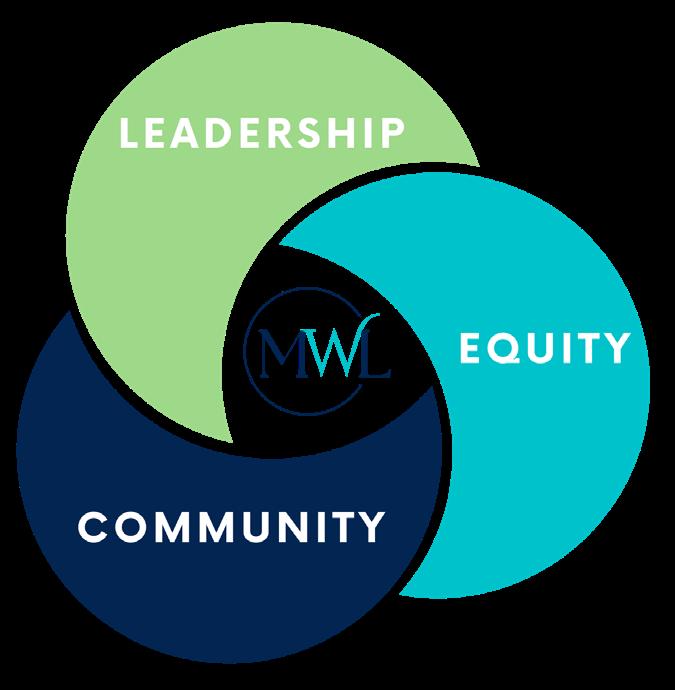
Poonam Kumar, 2023-2024 MWL President poonam.kumar@us.dlapiper.com
Debra Pexa, Executive Director dpexa@mwlawyers.org
Katie Gunaratne, Membership & Communications Coordinator kgunaratne@mwlawyers.org
Tessa Jones, Program & Projects Coordinator tjones@mwlawyers.org
600 Nicollet Mall, Suite 390B Minneapolis, MN 55402 (612) 338-3205 www.mwlawyers.org